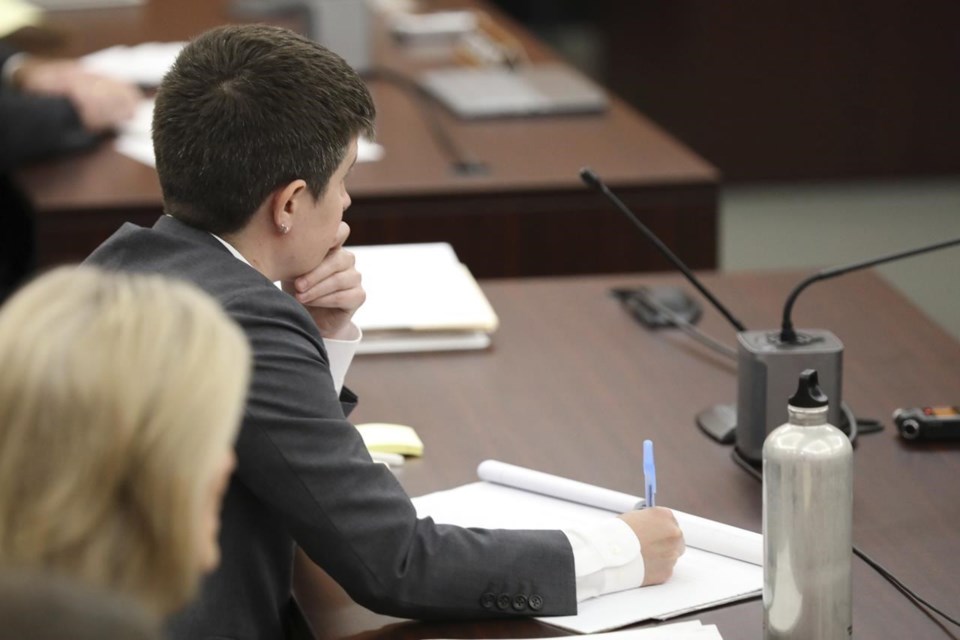COLUMBIA, S.C. (AP) — South Carolina's ban on abortions after roughly six weeks, before many women know they are pregnant, returned to court Thursday with Planned Parenthood and the state arguing over what could be two different ways to define a heartbeat in the law.
Even the state Supreme Court justices who upheld the new law in August noted there appeared to be two definitions of “fetal heartbeat” ending the window in which someone could seek an abortion. They wrote that question would be “for another day.”
That day arrived Thursday, as Circuit Judge Daniel Coble considered Planned Parenthood's request to block the new law until courts could decide in their suit over the definitions and the state's request to throw out the lawsuit. He said he will try to rule in a few weeks. No matter what Coble decides, his ruling will face months, if not years, of appeals.
Planned Parenthood said in court papers that in the first five months of the new law, three-quarters of women seeking abortions were turned away because their pregnancies were too far along, and 86% of those three-quarters could have had the procedure if the law allowed abortions up to nine weeks.
The state contends fetal heartbeat is the moment when an ultrasound detects cardiac activity, usually around six weeks after conception. But the law also mentions when the major parts of the heart come together and “repetitive rhythmic contraction” begins, which is often around nine weeks.
Lawyers for the state are turning Planned Parenthood's argument on its head by arguing that the organization said over 300 times that the law bans abortions after six weeks, during a successful challenge that caused the General Assembly to alter the law and led to the second unsuccessful challenge. They said the group changed its thoughts only after losing the second time.
Grayson Lambert, a lawyer for South Carolina's governor, said established law in the state has long said if there are disagreements with interpreting the law, judges need to give the most weight to the intent of lawmakers. All that was discussed during the General Assembly's abortion debate, he said, was six weeks.
“The electrical impulses that make that familiar whoosh sound on the ultrasound — that's what the General Assembly is talking about,” Lambert said.
But Planned Parenthood lawyer Kyla Eastling said criminal penalties meant the organization had to interpret the new law as conservatively as possible to protect doctors from criminal penalties.
“Doctors aren't the ones making the law," Eastling said. “They are just trying to understand it.”
South Carolina's law is written slightly differently from any other state's with a similarly timed ban, and minor differences in punctuation are what means the ban doesn't kick in until the chambers and valves of the heart come together, Eastling argued.
“To put it simply, you can't have a heartbeat before you have a heart,” Eastling said.
Since the U.S. Supreme Court overturned Roe v. Wade in 2022, ending a nationwide right to abortion, most Republican-controlled states have started enforcing new bans or restrictions, and most Democrat-dominated ones have sought to protect abortion access.
Currently, 14 states are enforcing bans on abortion at all stages of pregnancy, with limited exceptions, and South Carolina and two others have bans that kick in at or about six weeks into pregnancy. This week, Arizona put into law a bill repealing a Civil War-era ban of nearly all abortions.
In the South Carolina courtroom Thursday was Taylor Shelton, the woman who filed the lawsuit along with Planned Parenthood. She said her gynecologist responded dismissively when she first approached the office about options to end her unplanned pregnancy in September. Facing as much as two years’ imprisonment for violating the ban, health care providers were treading carefully.
Shelton's body had bent her intrauterine device, causing pain, and she was stunned to find out two days after missing her period, which she tracked regularly, that she was pregnant.
Because doctors in South Carolina were unsure how to define a heartbeat, she ended up in North Carolina, driving for hours to two appointments to get an abortion.
“The lack of clarity in this law leaves people like me scrambling to navigate a convoluted system that fails to prioritize our well-being and autonomy,” Shelton said, reading a statement outside of court as her hands slightly trembled.
Shelton said she had only about 12 days or so to meet the deadline in the South Carolina law, even though she almost immediately realized she might be pregnant. She also had the means and time to seek out help out of the state.
“Today I stand before you angry — angry at a system that seeks to control our bodies and dictate our choices,” Shelton said. “But I also stand determined, fueled by the conviction that no one should endure what I went through. We deserve better. We deserve clear, unequivocal laws.”
Jeffrey Collins, The Associated Press




